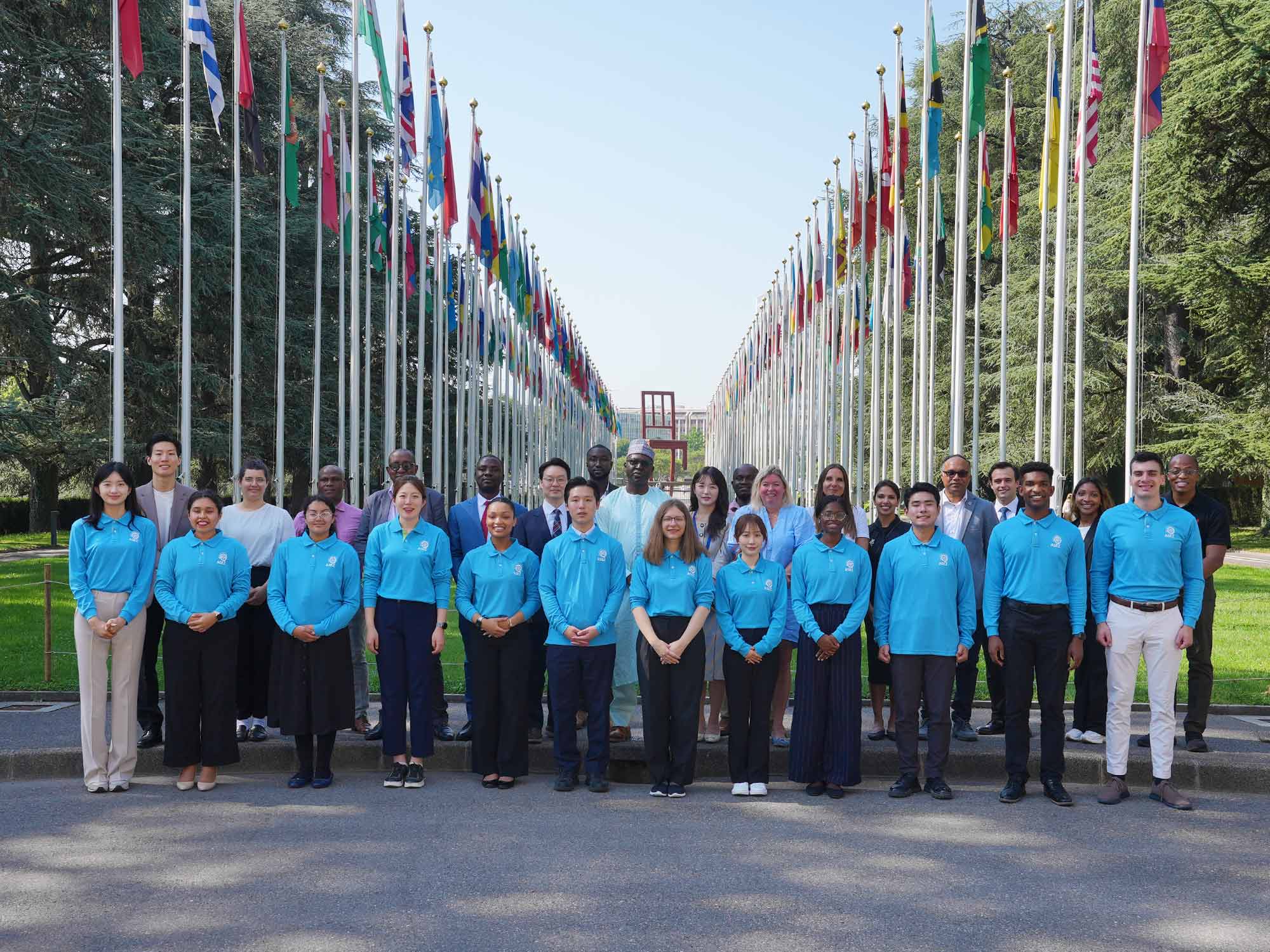“The world needs ASEZ’s leadership. It shows that when young people take the lead in reducing plastic pollution and driving climate action, the world can change. UNCTAD is ready to cooperate with ASEZ.”
H.E. Dr. Mohammadou Kah,
Vice Chair of UNCTAD and Permanent Ambassador of the Gambia to the United Nations in Geneva.
ASEZ, officially invited by the United Nations, participated in the “Resumed Fifth Session of the Intergovernmental Negotiating Committee on Plastic Pollution (INC-5.2)” held in Geneva, Switzerland. Eighteen ASEZ members from 15 universities across five countries (Korea, the United States, Germany, Switzerland, and Austria) attended the plenary sessions and contact groups.
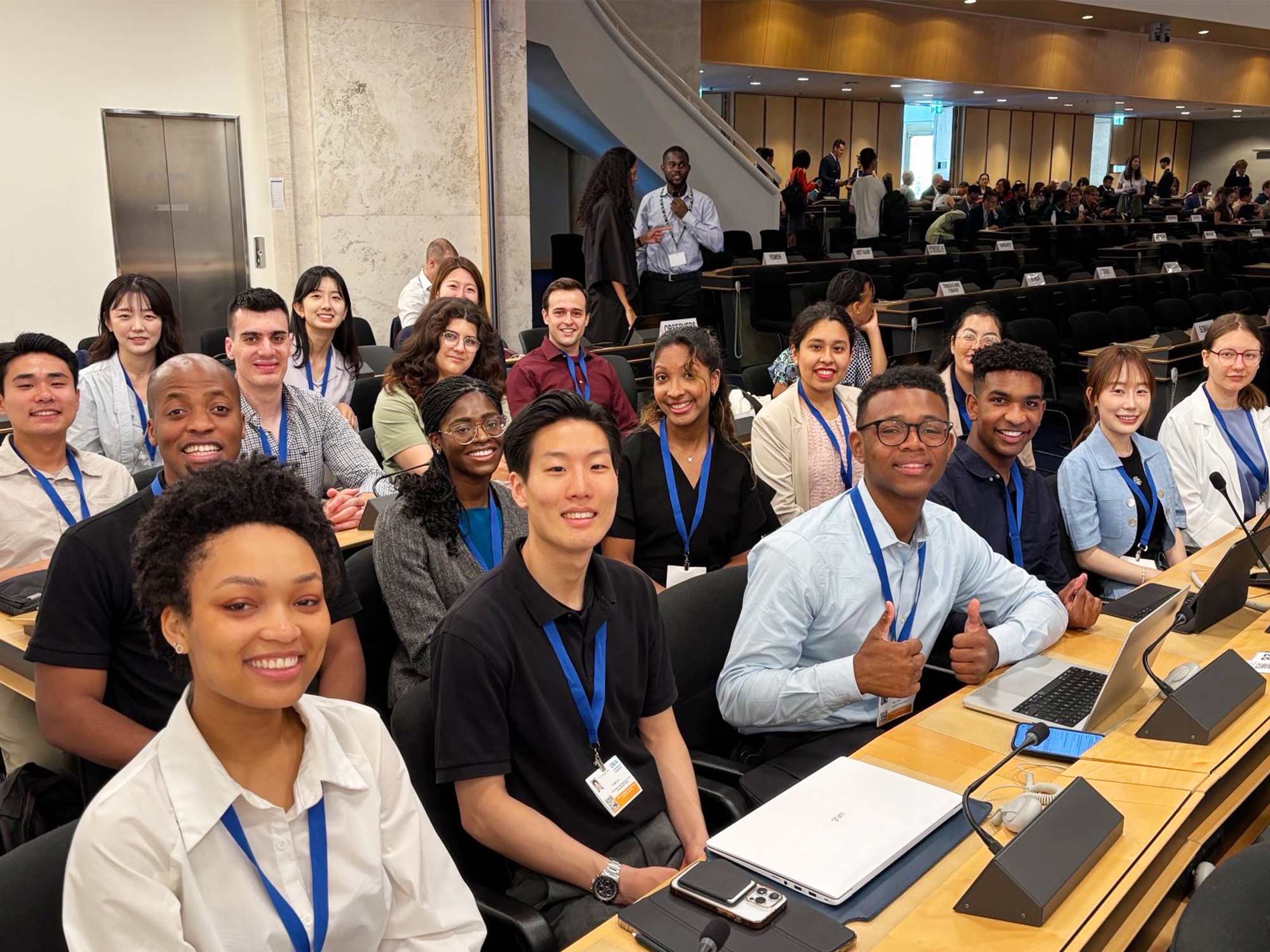
The regret that the Plastics Treaty was not finalized at last year’s INC-5.1 in Busan became an even greater driving force for ASEZ.
Ahead of INC-5.2, ASEZ members carried out campaigns at universities worldwide to raise awareness and encourage student participation. Not only did they conduct “Zero Challenge” and “Zero Plastic Campaigns” at 1,000 universities, but they also collected about 10,000 signatures both online and offline in support of the treaty’s adoption. This was a heartfelt message to the international community, as university students from around the world spoke with one voice urging the finalization of the treaty.
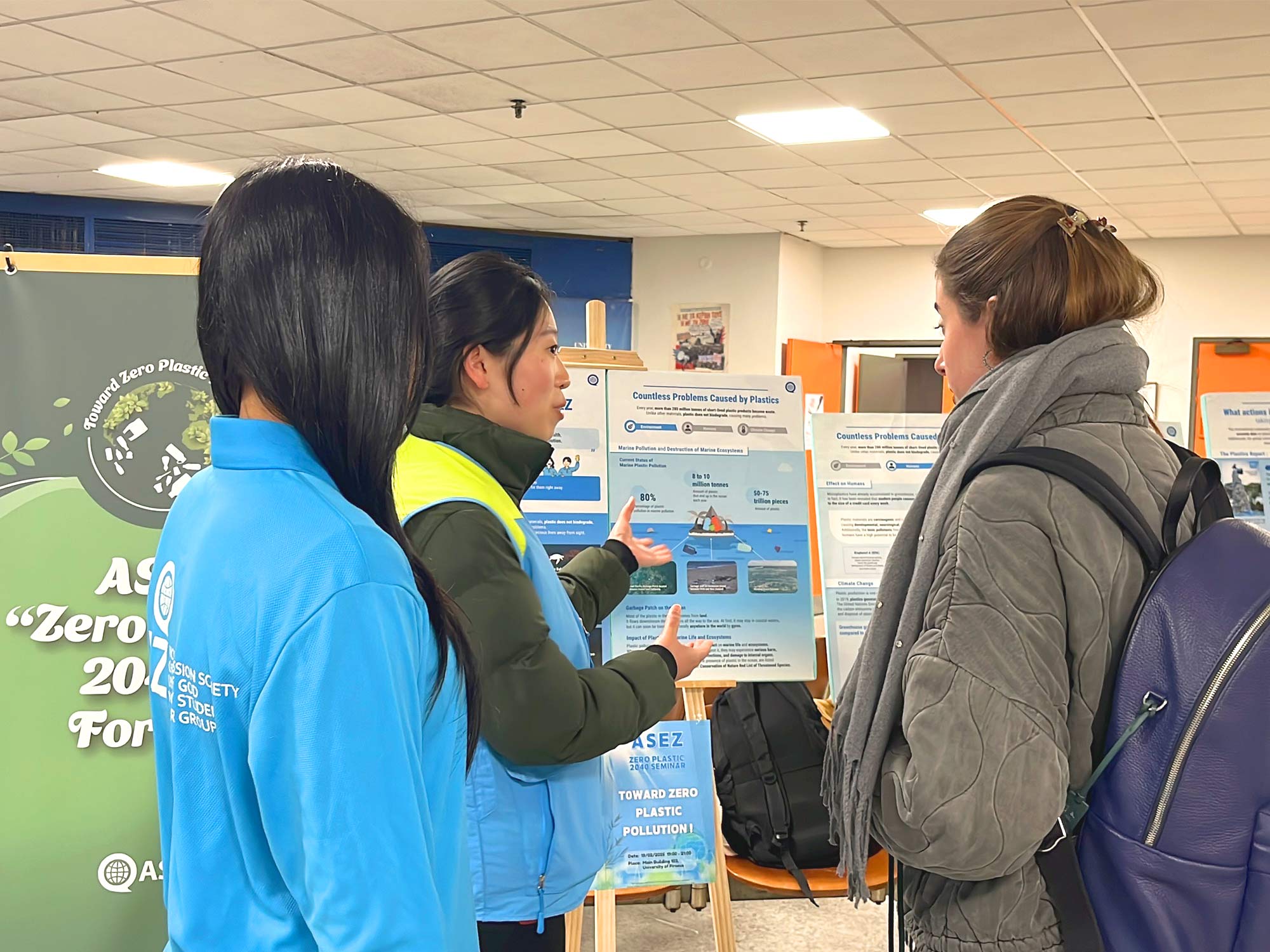
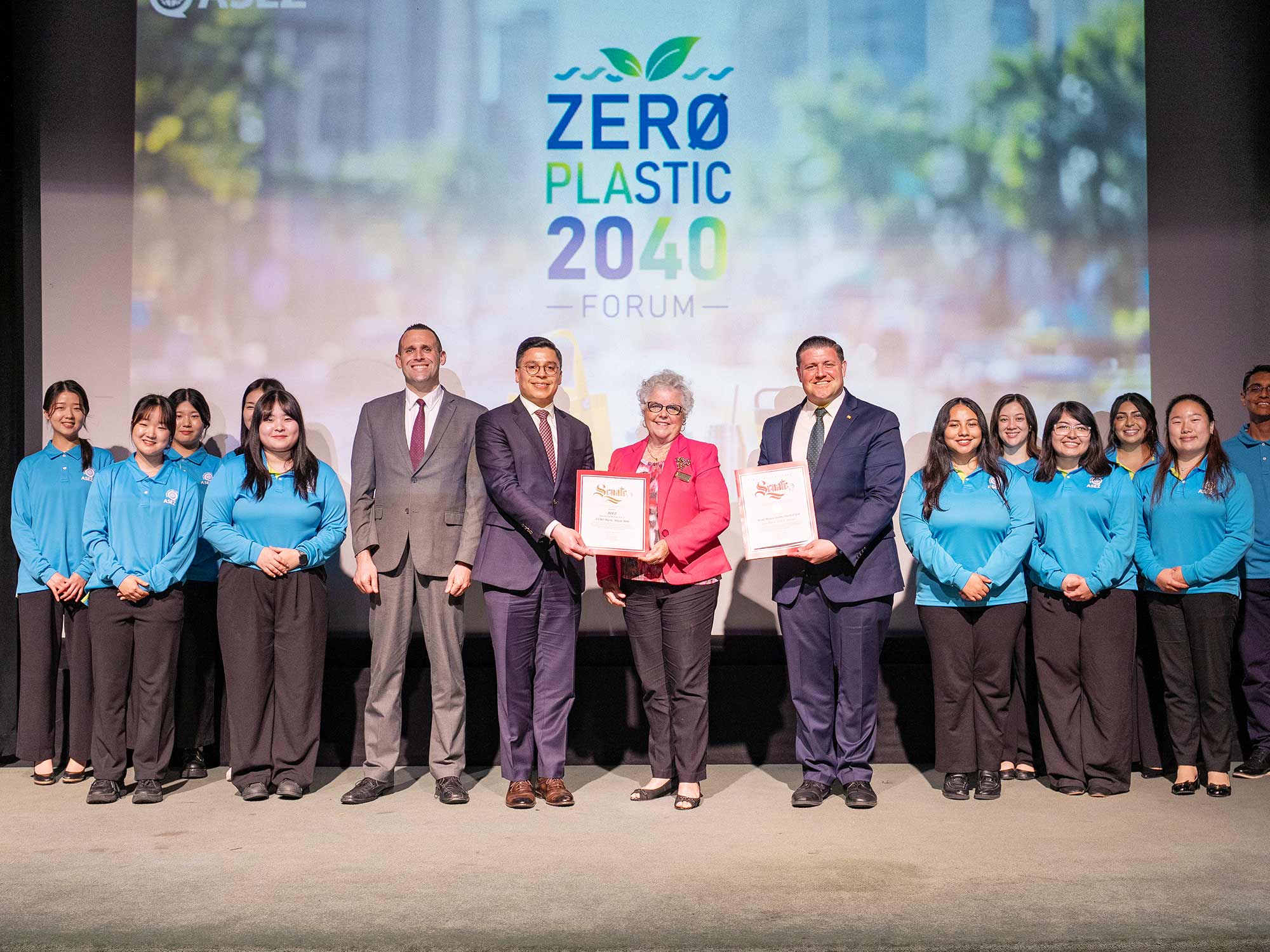
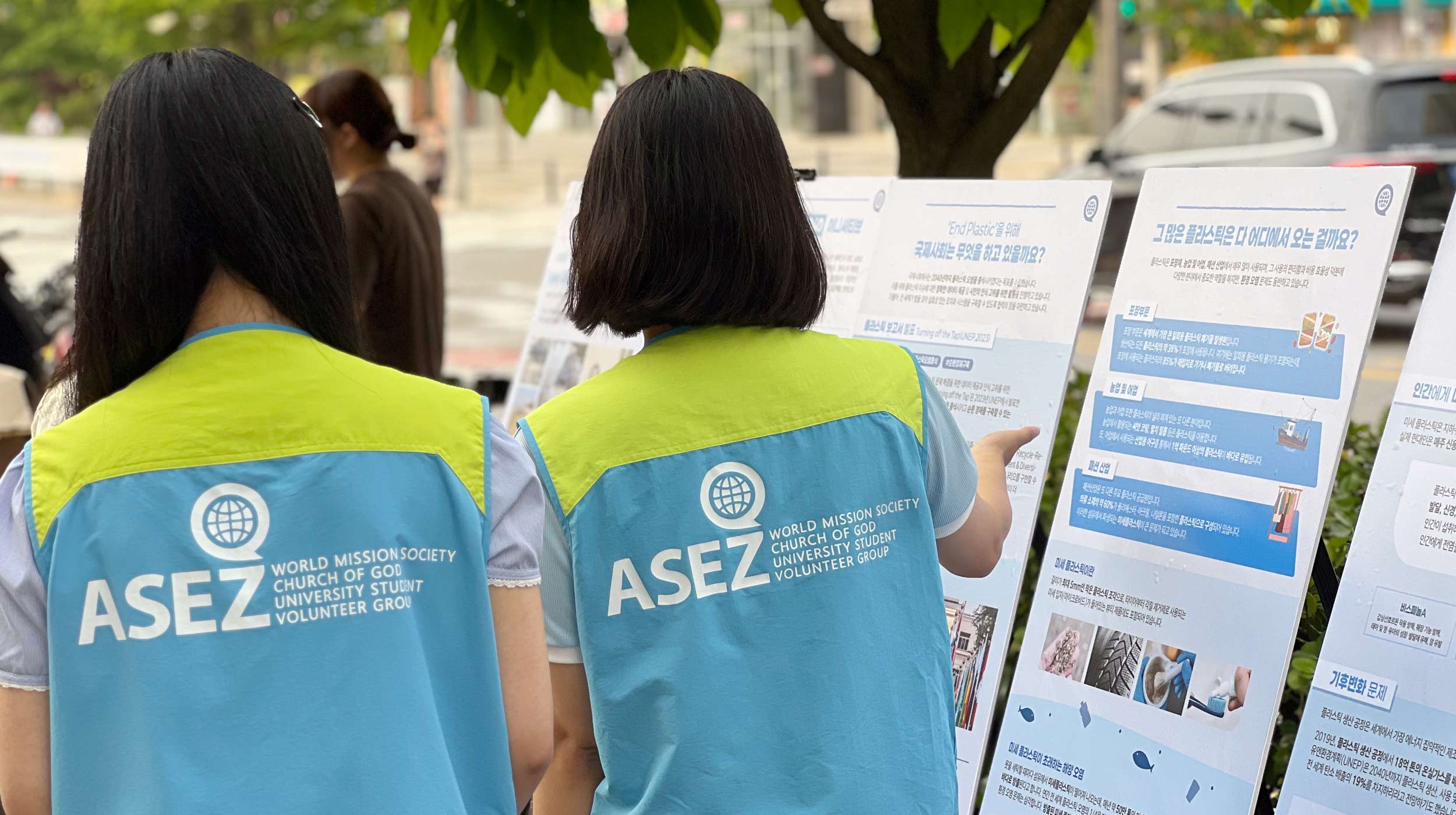

At this session, ASEZ engaged with 177 stakeholders from 117 countries, including UN representatives, government delegations, and international organization experts. They sought advice on urgent issues, discussed the role of students in solving them, and delivered the voice of youth by contributing to a joint youth declaration.
ASEZ also held 22 bilateral meetings with organizations and government bodies including the INC Chair, the Secretary-General of the International Federation of Red Cross and Red Crescent Societies (IFRC), the U.S. Congress, UNIDIR, UNCTAD, and the Ministries of Environment of Rwanda, Tuvalu, and Eswatini. These meetings not only expanded ASEZ’s international network but also inspired new ways to effectively organize student-led initiatives.
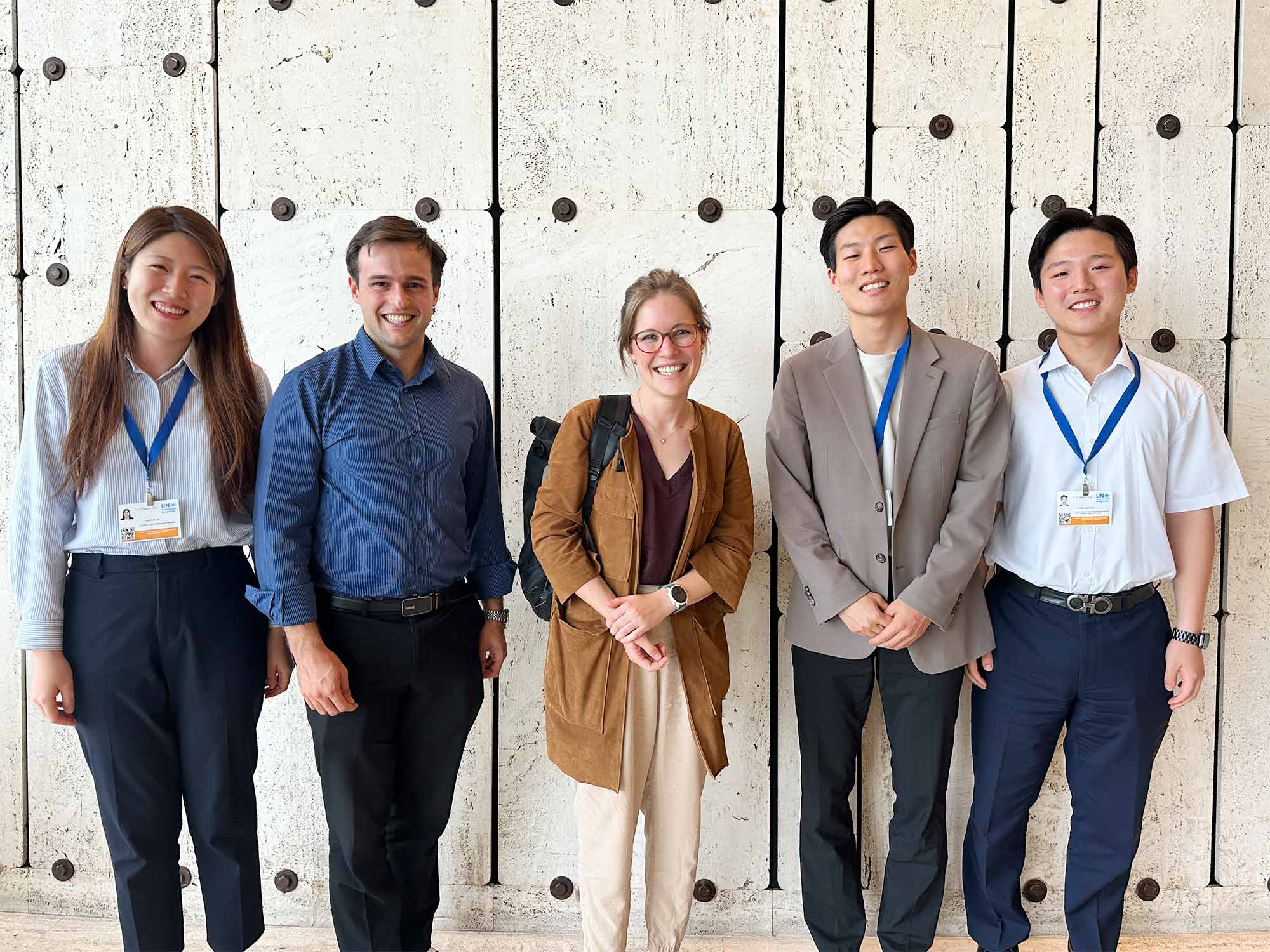
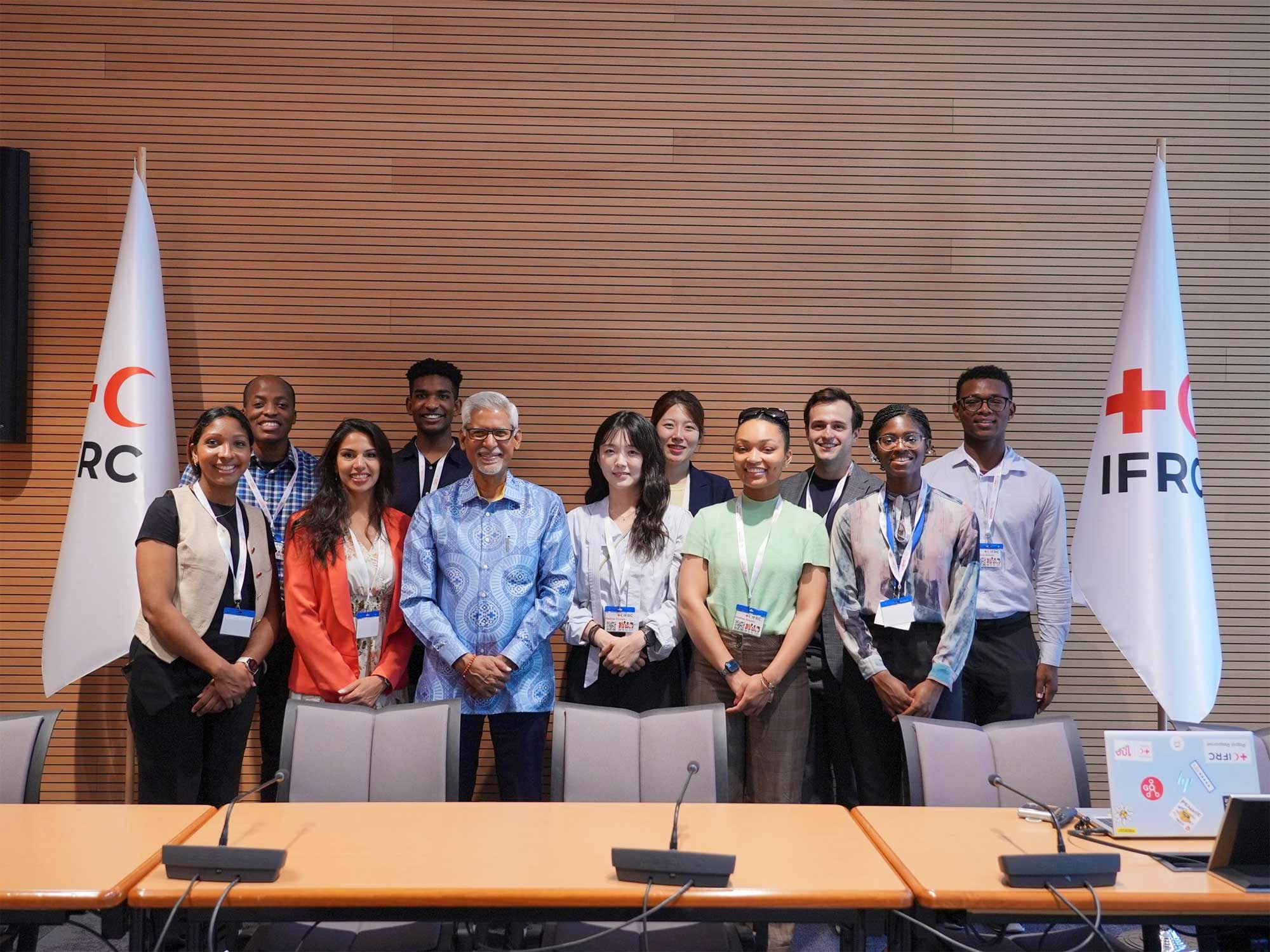
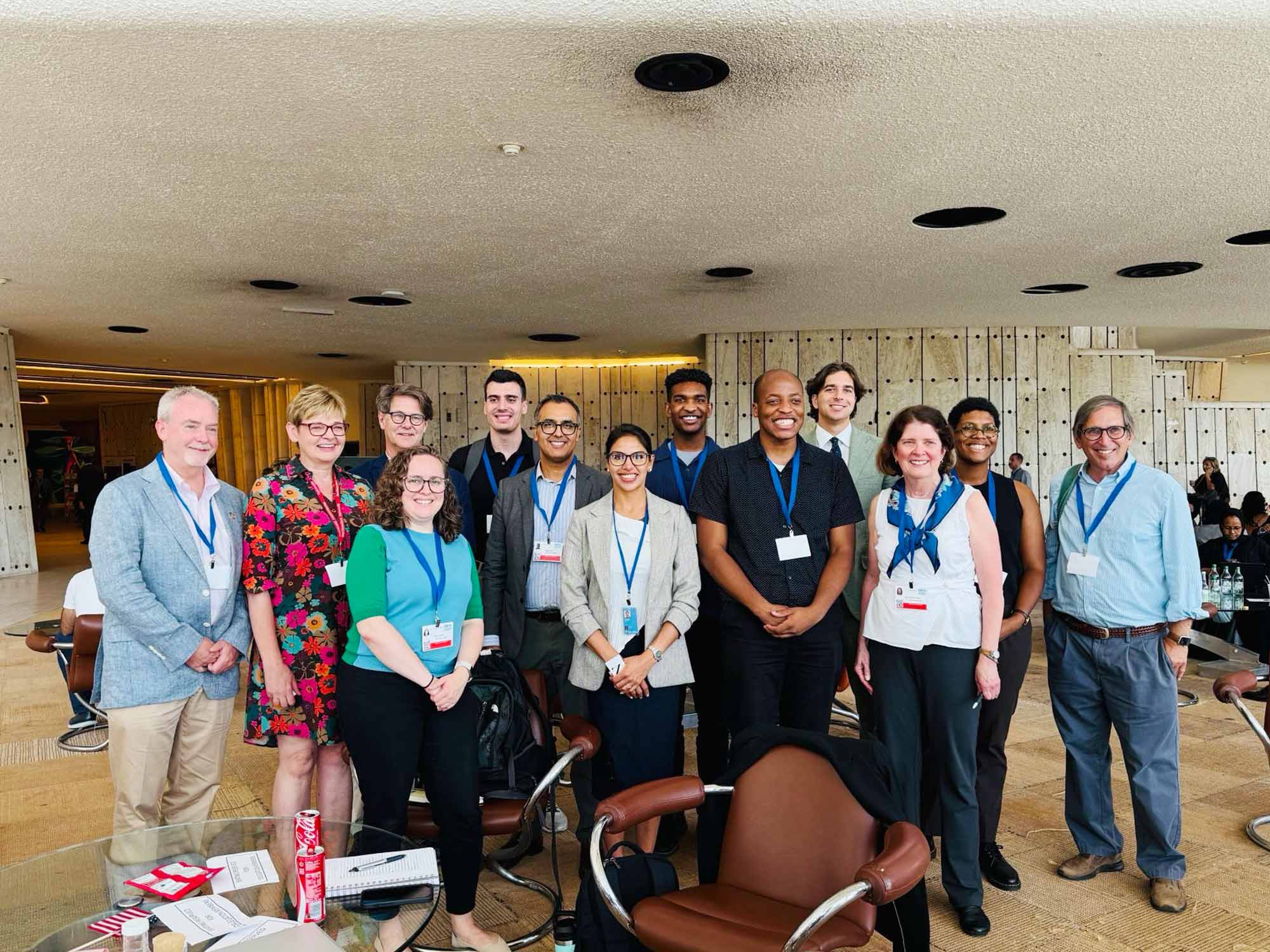
Particularly, INC Chair Luis Vayas Valdivieso, the highest decision-maker of the session, expressed his impressions of ASEZ’s Zero Plastic signature campaign and activities:
“What we are trying to do after the treaty is concluded is to organize global campaigns. But you are already doing that. Keep going. And right after the treaty is adopted, the very first video statement I will record will be for ASEZ. That will be my first declaration following the adoption of the Plastics Treaty.”
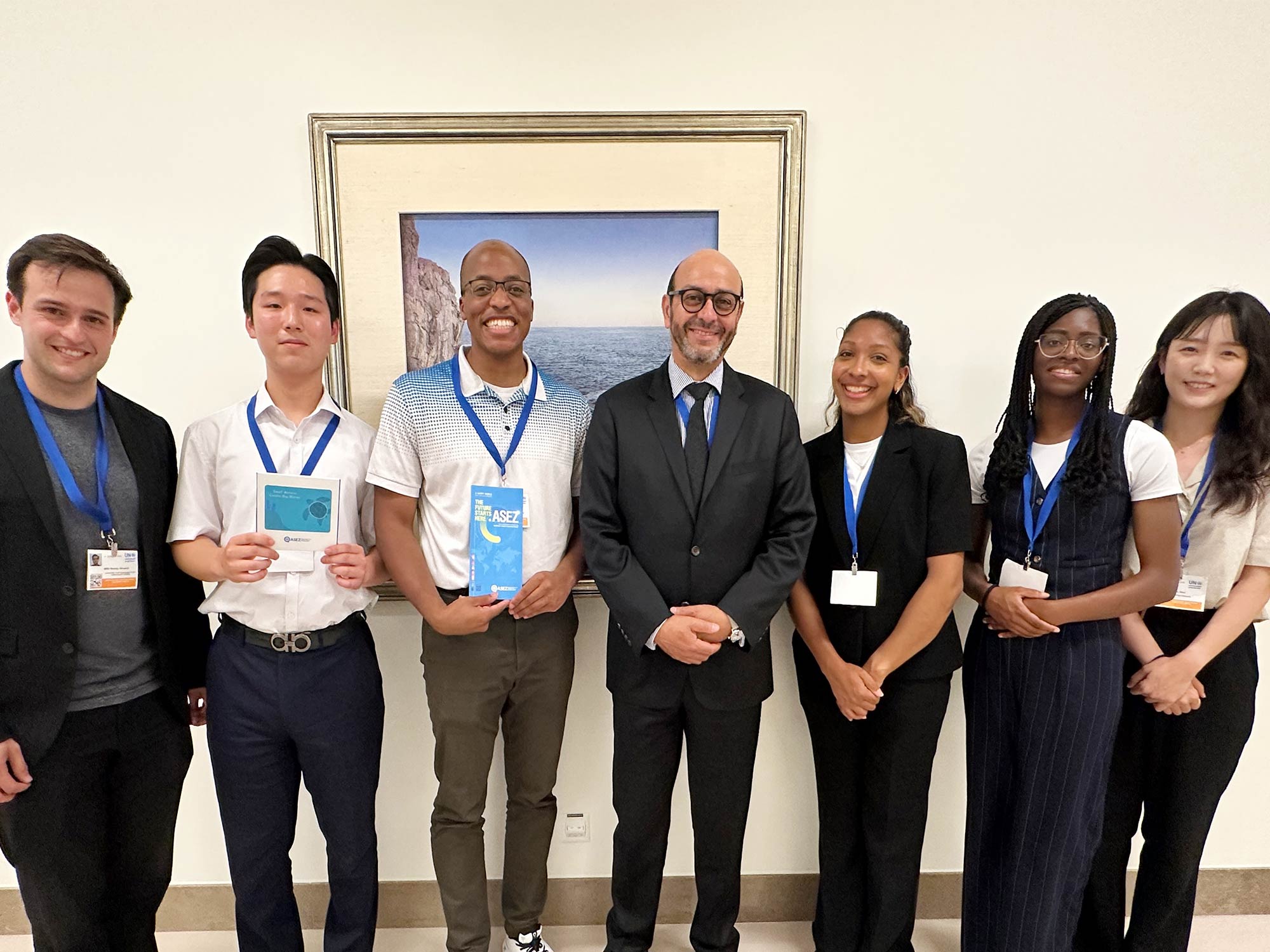
On August 12, International Youth Day, ASEZ co-hosted an event with UNCTAD at the UN headquarters in Geneva. The event showcased ASEZ’s examples of global youth leadership and discussed youth participation in circular economy and sustainability.
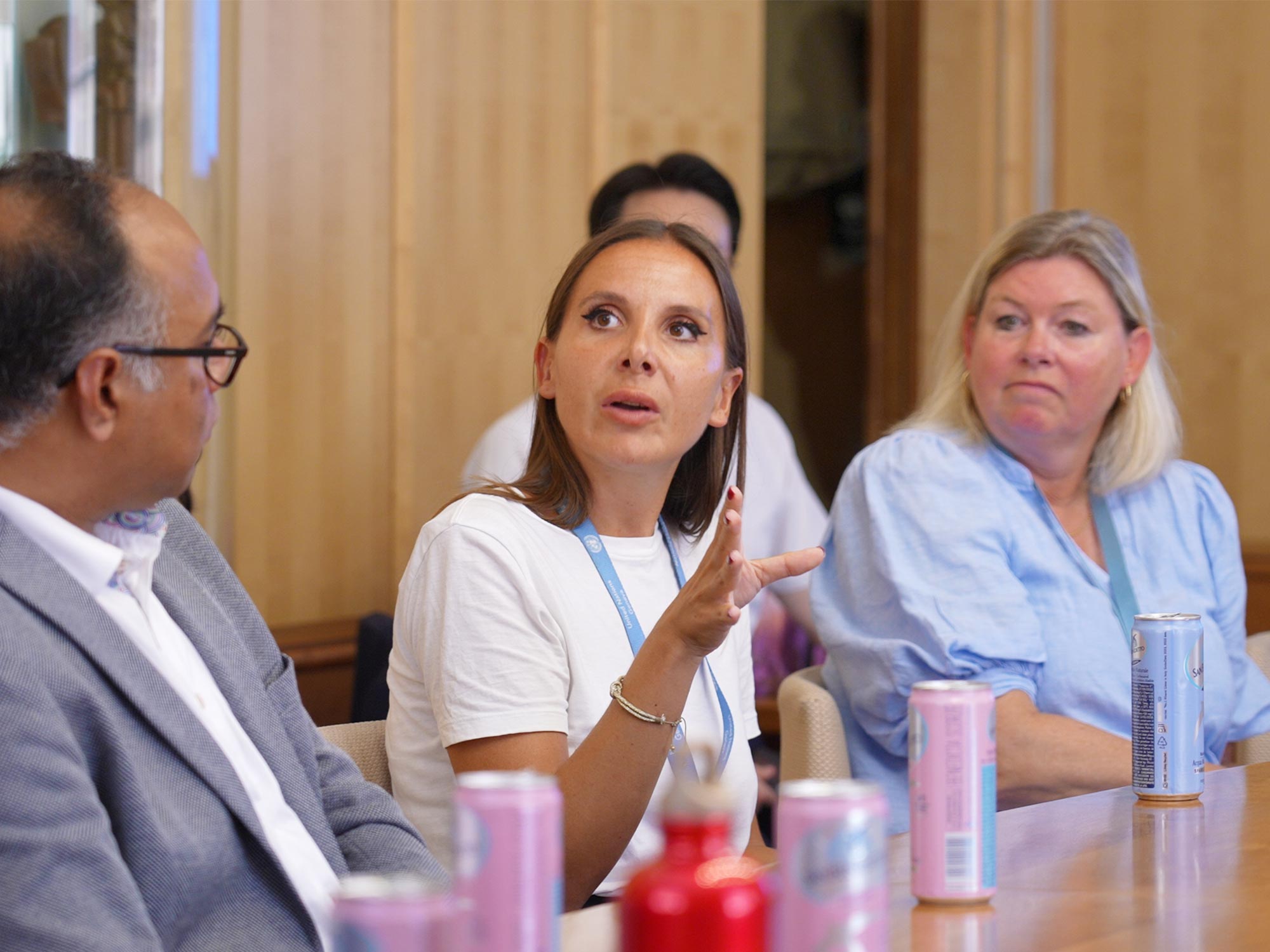
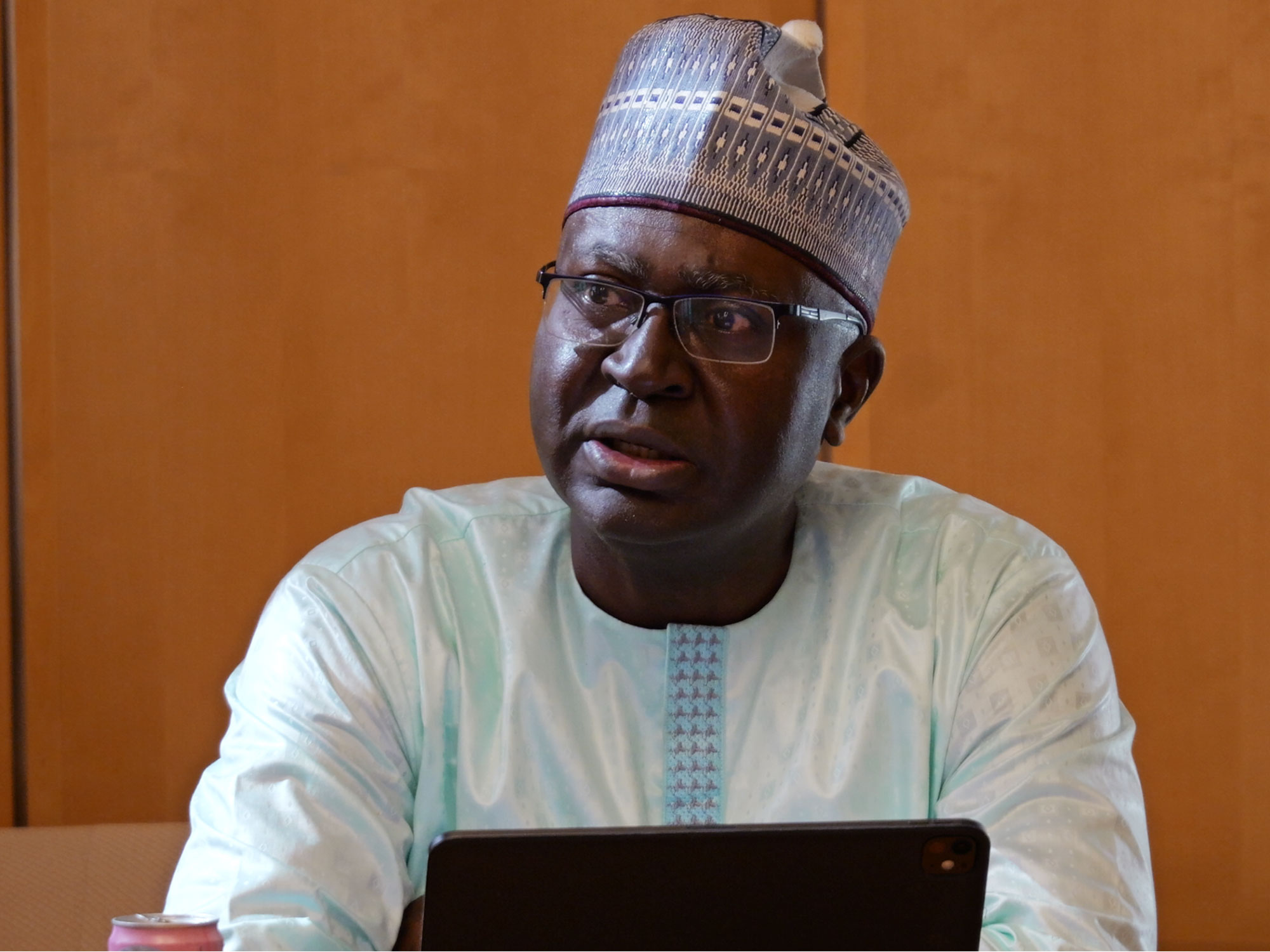
The program began with keynote speeches by H.E. Ambassador Dr. Mohammadou Kah, Vice Chair of UNCTAD, and Ms. Arlette Verploegh, Head of Entrepreneurship Development and UNCTAD Youth Network Coordinator. It continued with presentations by ASEZ members and introductions of UNCTAD’s environmental protection strategies.
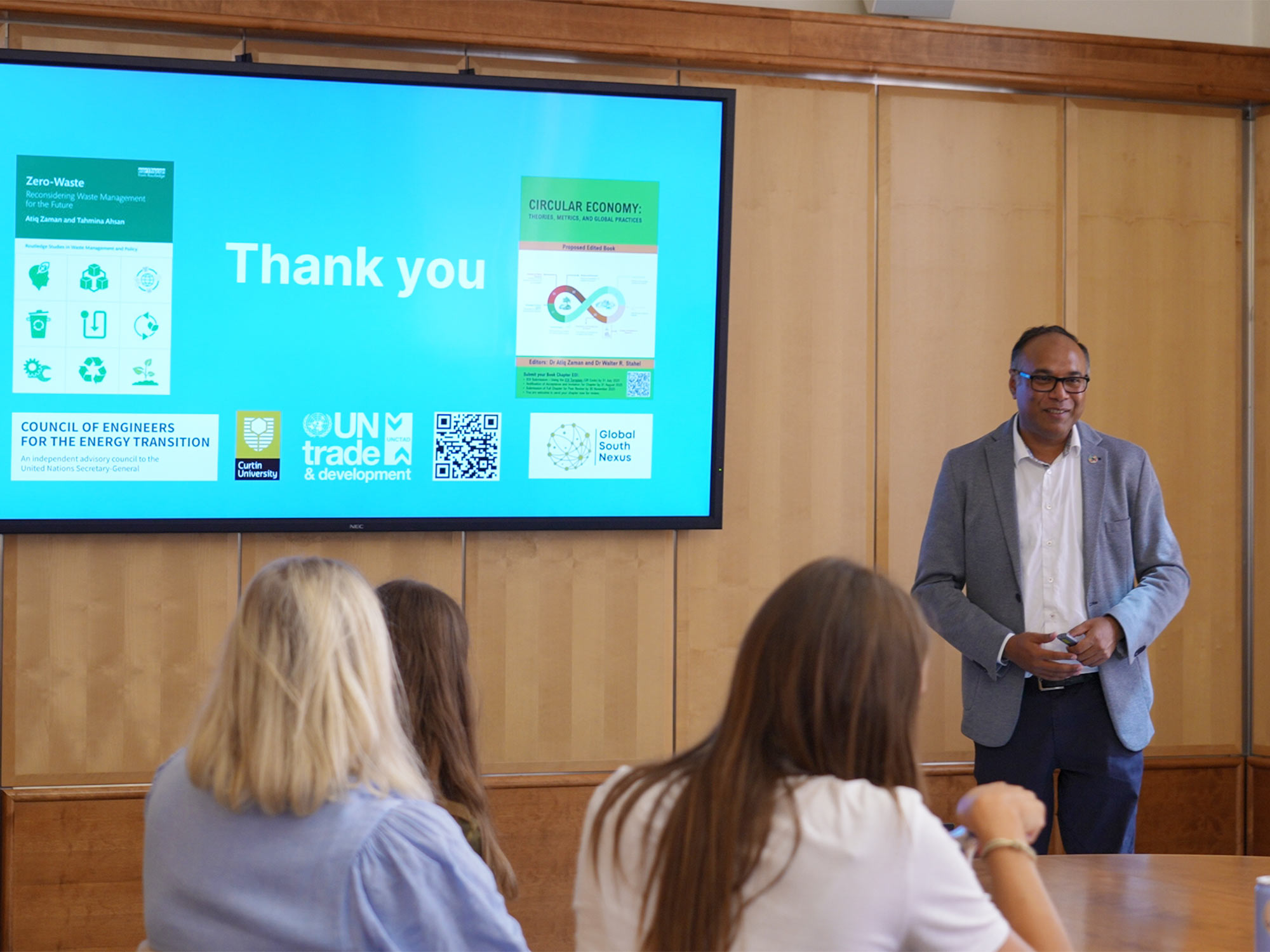
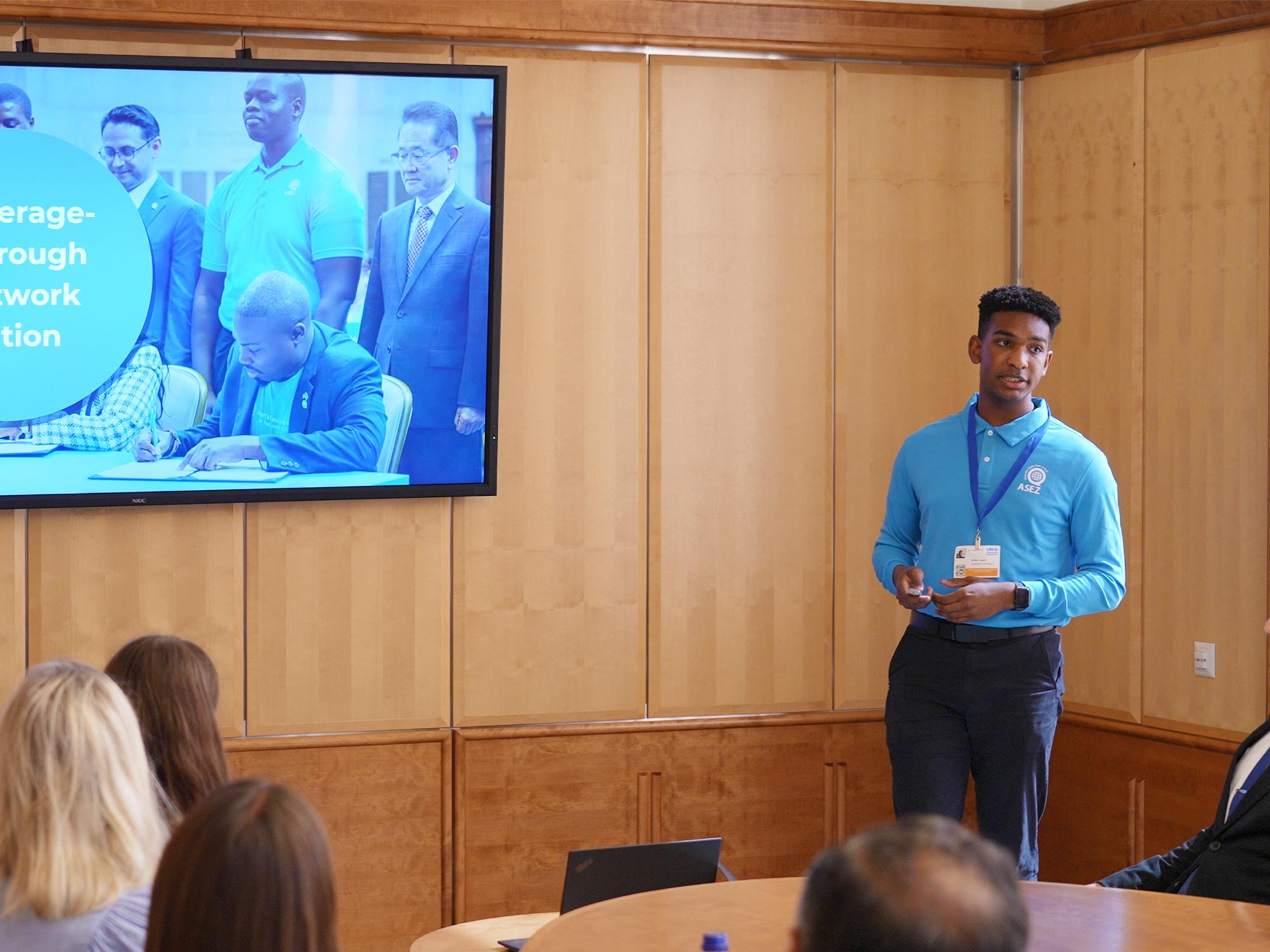
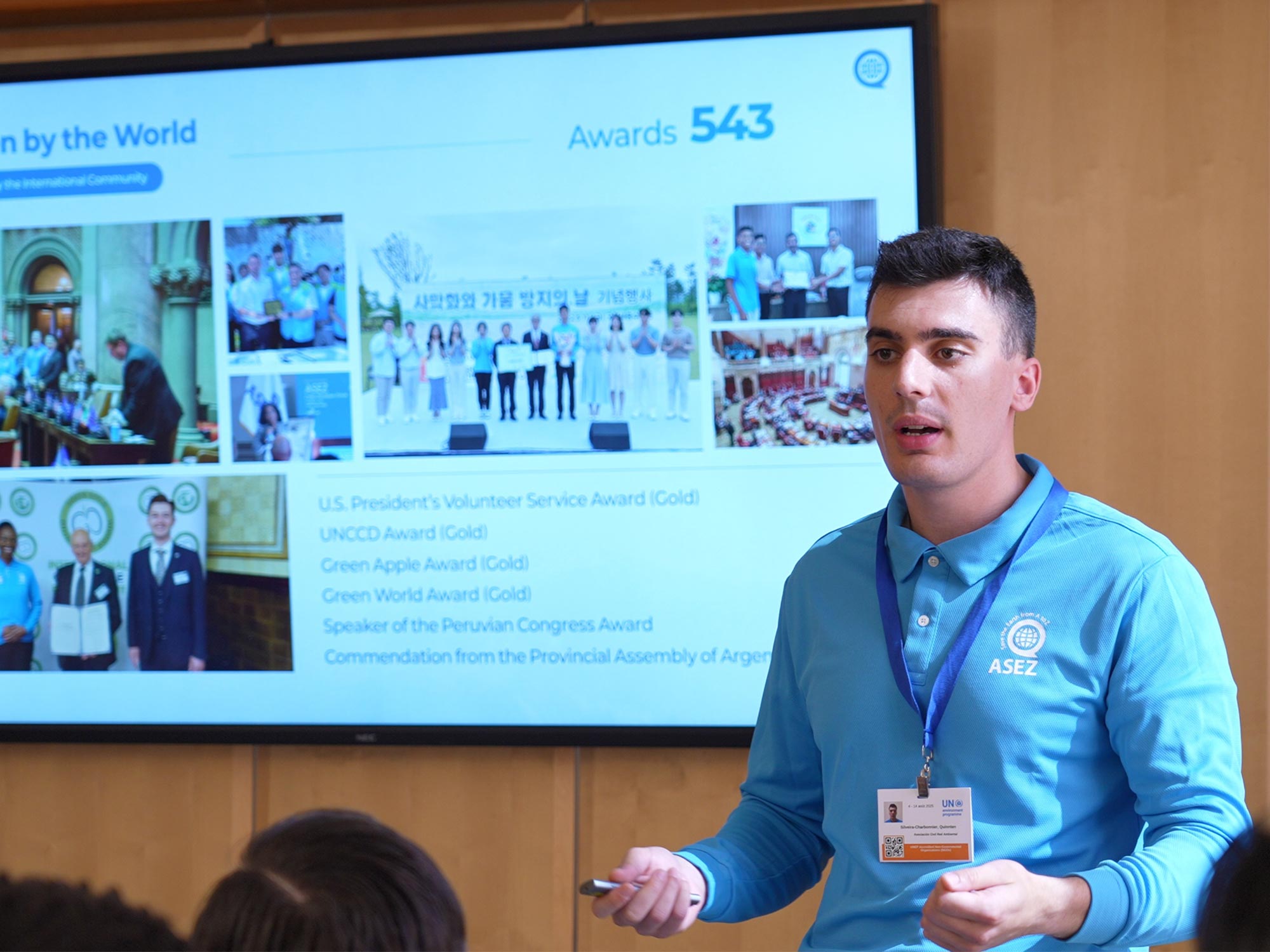
UNCTAD officials, including the Director of the Division for Africa, Least Developed Countries and Special Programmes, voiced unanimous support for ASEZ, saying:
“ASEZ is a community of true change-makers, people who are urgently needed by the world. Institutions like ours must join so that your voices can truly contribute to a better world.”
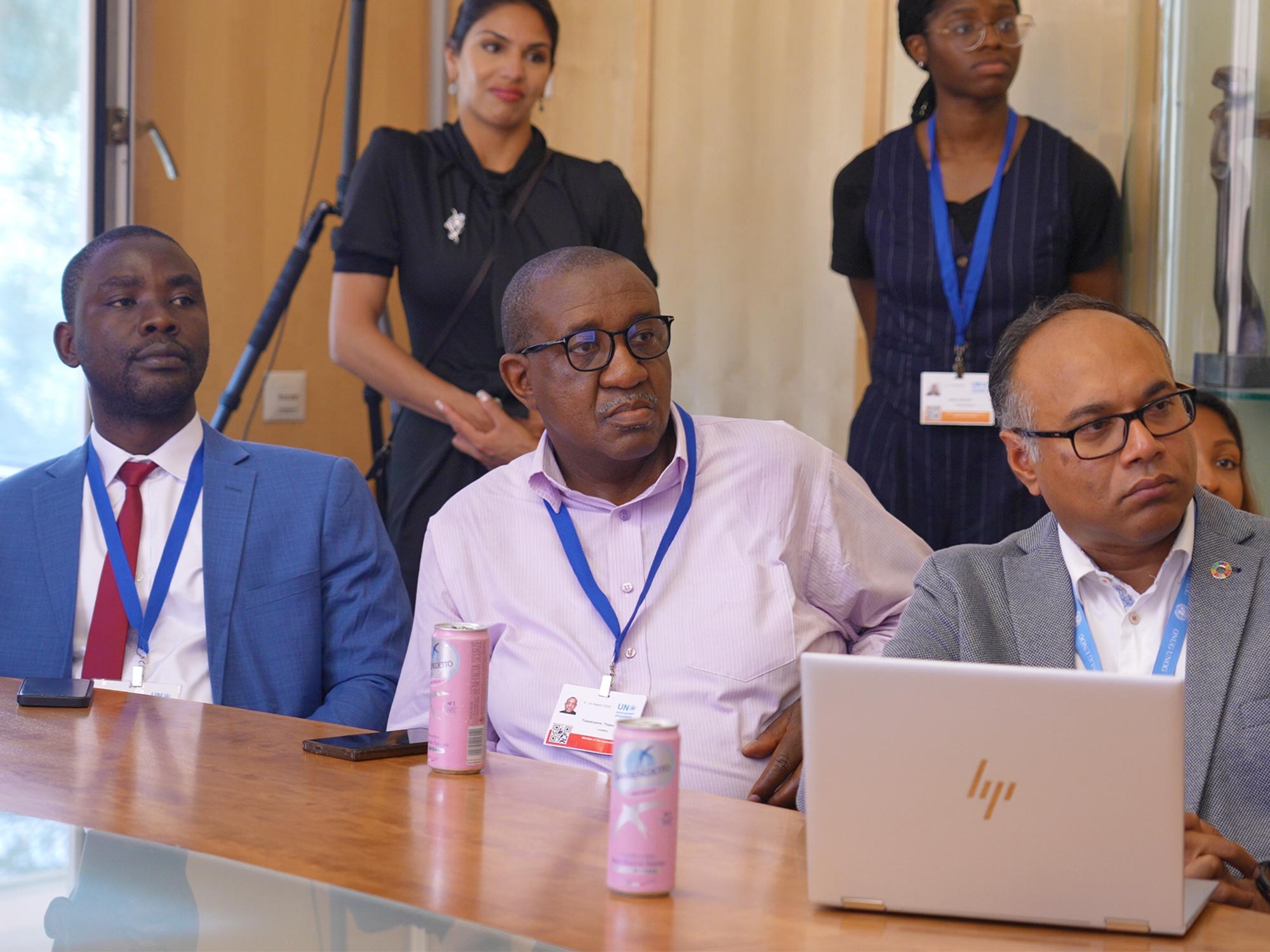
Kobeli Tabo Tsasanyane, Chief Environmental Officer at the Ministry of Environment and Forestry of Lesotho, who had met ASEZ during the INC-5.1 in Busan, also attended and said:
“Since I first met ASEZ in Busan last year, I have seen a great future. I was deeply impressed by ASEZ’s crime prevention activities, sustainable management, and climate change campaigns. If young people in Lesotho cooperate with ASEZ to connect with young adults worldwide and exchange ideas, they can make a significant contribution to solving global crises, especially plastic pollution. I fully support your wonderful work.”
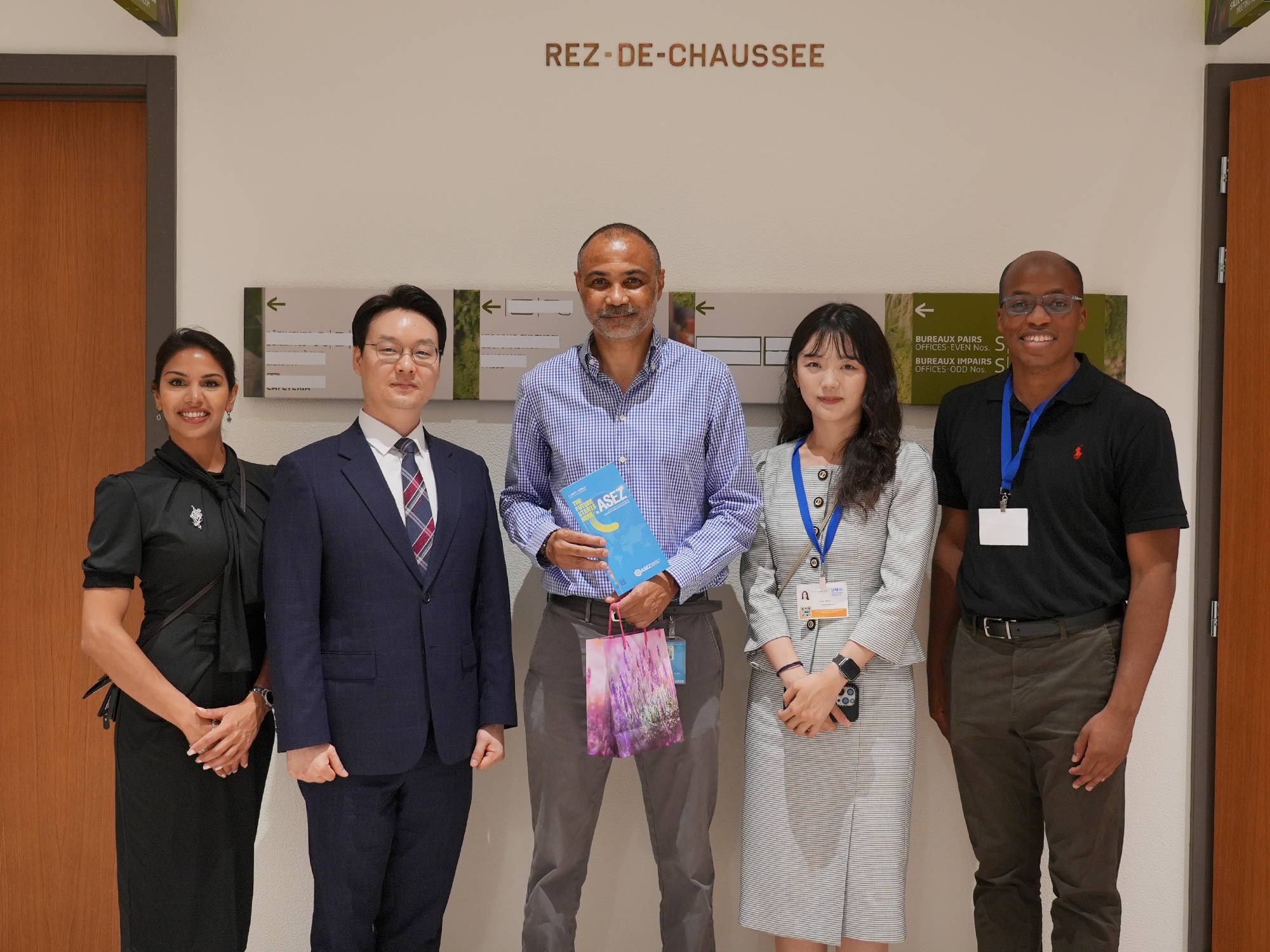
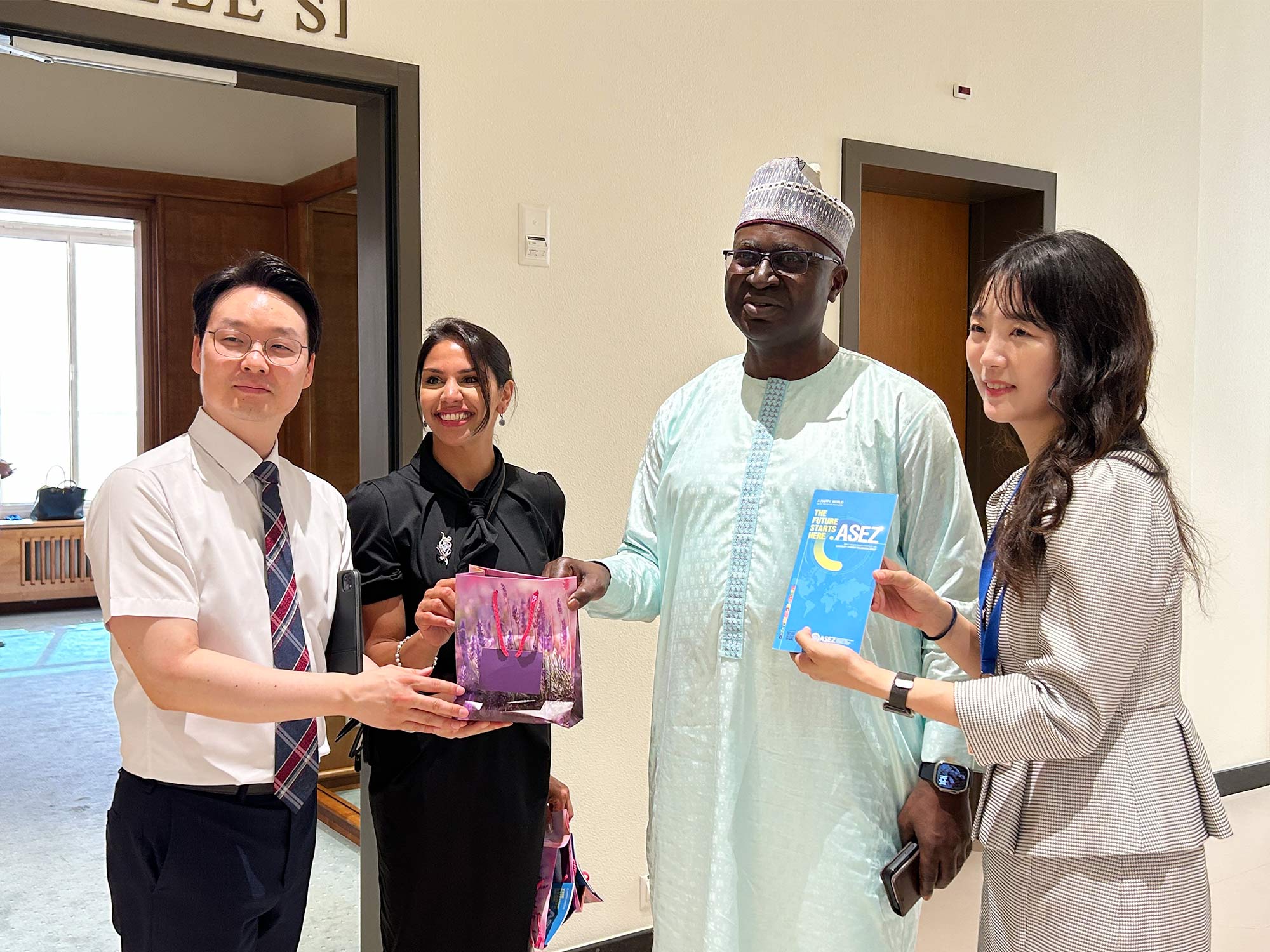
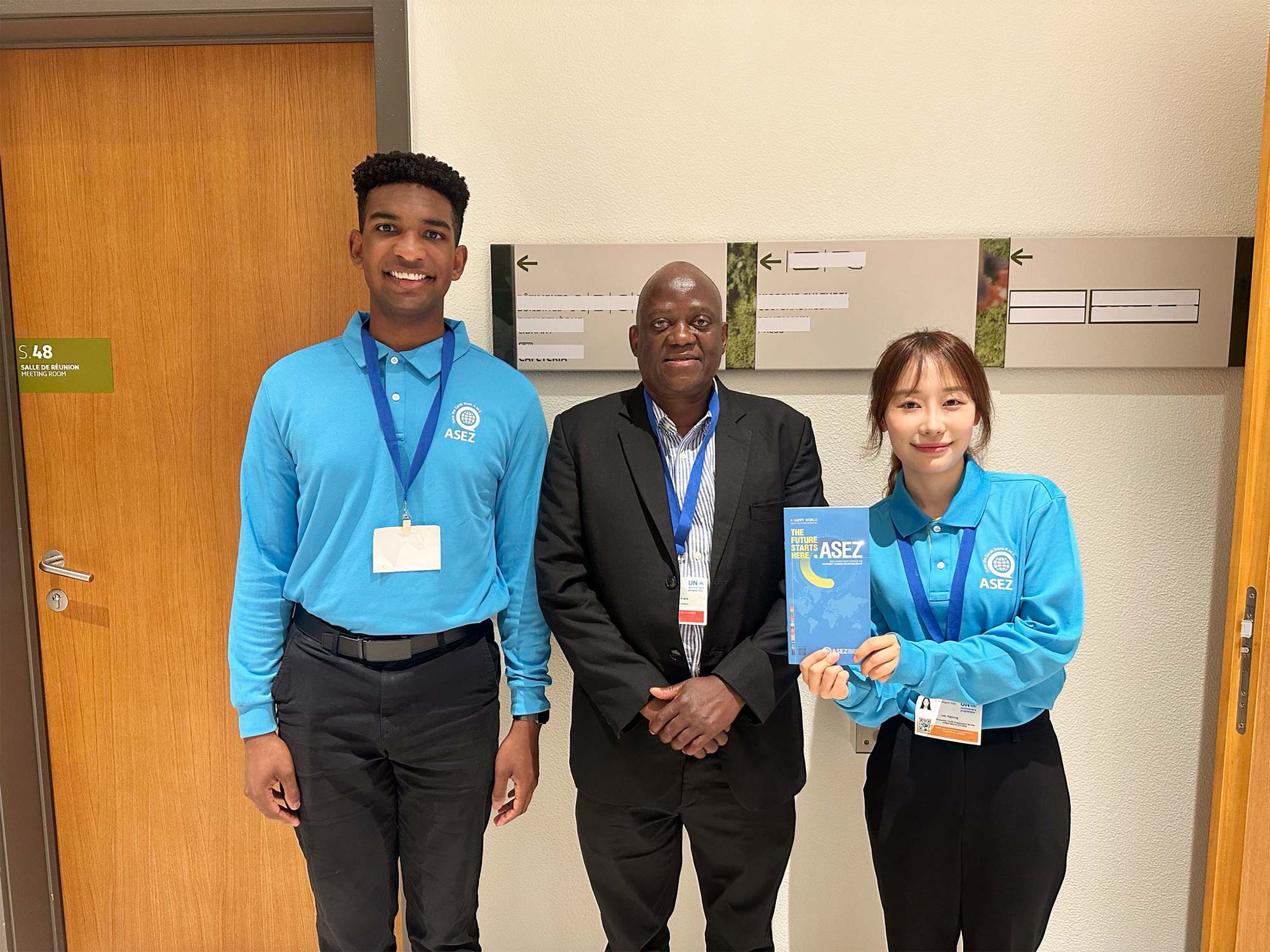
Recognized for its global climate action activities, particularly the achievements of the Zero Plastic Campaign, ASEZ was officially invited to INC-5.2 and received wide support from international figures. ASEZ’s youth-led, practical leadership is gaining even greater recognition on the world stage.

As confirmed in INC-5.2, the success of the treaty depends on reconciling the diverse interests of nations. About 100 countries insist on mandatory measures such as limiting plastic production and regulating hazardous chemicals. However, since 98% of plastics are produced from fossil fuels, oil-producing countries oppose such measures to protect their domestic industries. Moreover, negotiations proceed on the principle of “consensus,” not majority vote, meaning that even one country’s strong objection can significantly delay the final agreement.
Against this backdrop, the INC Chair urged the youth:
“Since nations will play a critical role in the decision-making process, reach out to delegations and arrange meetings. By doing so, you can influence the outcome of the treaty.”
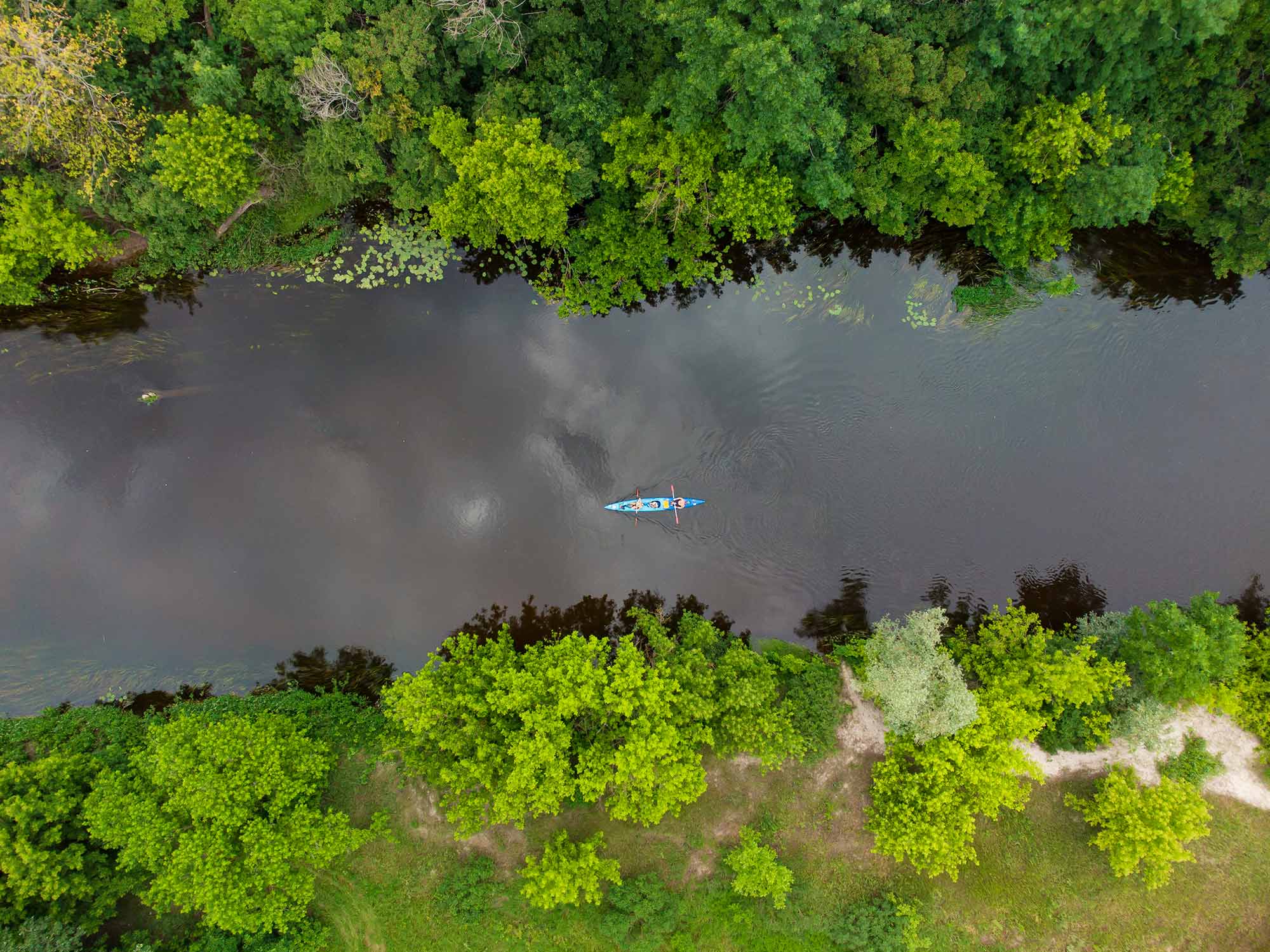
In response, ASEZ plans to continue developing regional education programs and campaigns to engage citizens as participants in eco-friendly consumption and policymaking. They also intend to strengthen networks with national delegations and decision-makers to effectively support the treaty’s adoption.
As their first project, in order to protect the Amazon, the ‘lungs of the Earth,’ from plastic pollution, university students from nine Latin American countries will issue a ‘Save the Amazon’ declaration, establish a student initiative for practical action, and carry out joint activities in cooperation with the five member states of the Amazon Cooperation Treaty Organization (ACTO) and the legislative bodies of four related countries.
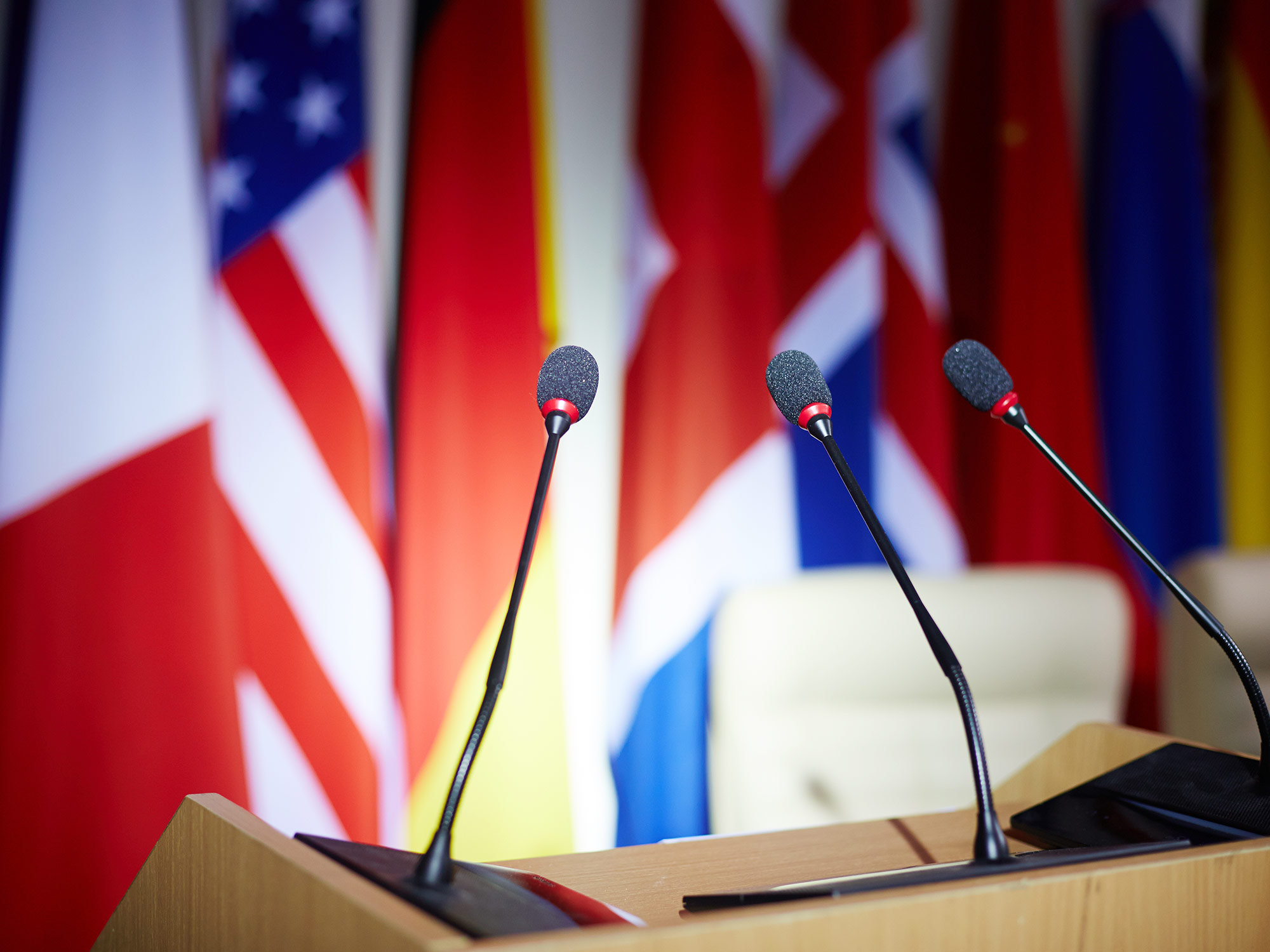
After the session concluded, Inger Andersen, Executive Director of the United Nations Environment Programme (UNEP), emphasized:
“Everyone has to understand that this work will not stop, because plastic pollution will not stop.”
As Andersen stated, ASEZ will also continue its actions without pause until the day comes when small practices accumulate and bring about real change.
